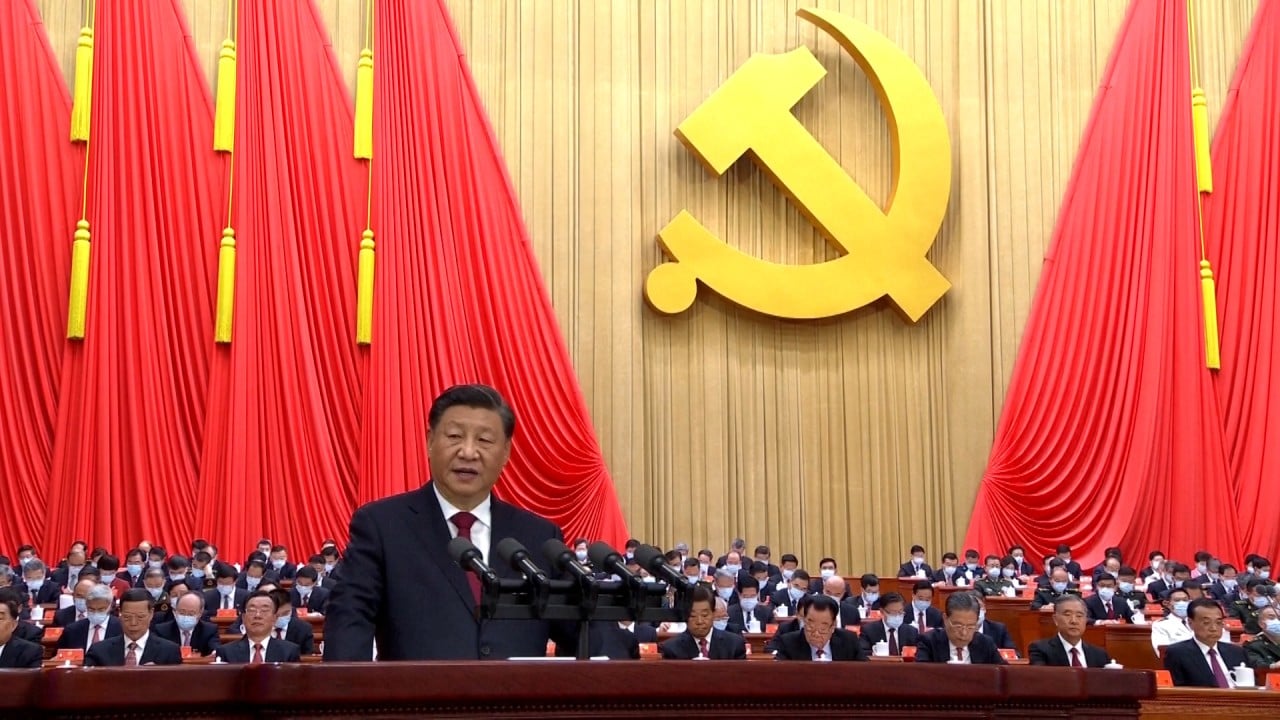
Guangdong chief Li Xi set for top job at China’s Communist Party anti-corruption watchdog
- Li Xi is among the new faces at the Central Commission for Discipline Inspection
- Li is also expected to be promoted to the party’s top decision-making body
As the CCDI chief, he would also likely be promoted to the Politburo Standing Committee, the party’s top decision-making body. His new role is expected to be confirmed on Sunday.
Li’s predecessor, Zhao, was re-elected to the Central Committee and could become chairman of the Chinese People’s Political Consultative Conference, with the expected retirement of Wang Yang.
The new line-up of the Politburo, the party’s top policymaking body, and its Standing Committee will be made public on Sunday.
Bigger-than-expected changes loom as Xi shapes China’s top leadership
“We have rectified some stubborn diseases that have not emerged for many years … and achieved an overwhelming victory in the anti-corruption struggle, and comprehensively consolidated and eliminated the serious hidden dangers existing within the party, state and military,” he said.
“As long as the breeding ground and conditions for corruption still exist, we must keep sounding the bugle and never rest, not even for a minute, in our fight against corruption.”
The anti-corruption message was driven home in a commentary published by state news agency Xinhua early on Saturday morning.
The commentary pointed out the challenges ahead for the organisation and the need to centralise power under Xi’s “core” leadership.
It said the party had made an all-out effort to enforce strict party discipline and had solved many problems since the 2012 congress, but now had to navigate uncharted waters and confront long-term challenges.
“We must be soberly aware that the party will face long-term tests in governance, while opening up the economy and facing external challenges, and that the dangers of complacency, incompetence, detachment from the people and corruption will persist,” the commentary said.
It said the solution was to adhere to and strengthen the leadership of the party and be unified under Xi.
“[We should] insist and strengthen the centralised and unified leadership of the party’s Central Committee … to ensure that the whole party is highly consistent with the Central Committee with President Xi at its core in terms of political stand, political direction, political principles and political path,” the commentary said.
What Xi Jinping’s shortened congress work report did not mention
Xi’s role as the “core” of the party was also reaffirmed in amendments to the party’s constitution approved by congress delegates on Saturday.
“The congress considers that the leadership of the Communist Party is the fundamental guarantee for the realisation of the great rejuvenation of China,” according to a resolution announced at the congress’s closing ceremony on Saturday.
It added that the “Two Establishes”, which define Xi as the “core leader” of the party and his thoughts as the guiding principles of China’s future development, were the major political achievements of the party.
Meanwhile, the Xinhua commentary outlined measures to strengthen the party’s discipline, including a comprehensive and efficient monitoring system and additional strength for the party’s political and organisational functions.
However, as discipline enforcement is top-down and is largely dependent on inspections, the question of who is there to discipline the top officials remains.


